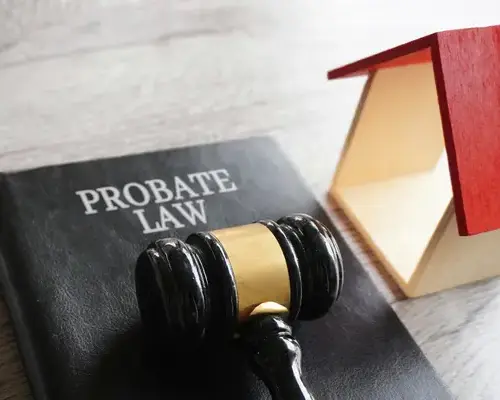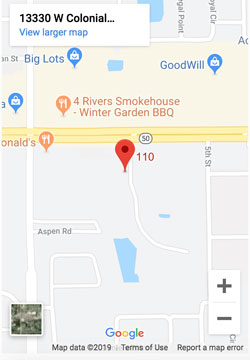What a Partition Action Lawyer Can Do For You
It’s a common misconception that if you own a smaller percentage of a property, you have no say in its future. This can leave you feeling powerless, especially if the majority owner is making all the decisions without your consent. The good news is that in Florida, the law is on your side. Any co-owner, regardless of their ownership stake, has the absolute right to file a partition action to force the sale or division of the property. You don’t have to remain stuck in an unfair or unwanted co-ownership arrangement. A partition action lawyer can help you understand and assert your rights, guiding you through the legal process to achieve a fair outcome. This guide will break down the steps and empower you to take action.
Key Takeaways
- Force a Resolution When You’re Stuck: A partition action is your legal right to end a co-ownership stalemate. It creates a clear path to sell the property and divide the value, allowing you to access your equity and move forward.
- Hire a Lawyer to Find the Best Solution: An experienced attorney’s main job is to protect your interests by exploring all options, not just a court sale. They can negotiate a private buyout or settlement, which often saves time, money, and stress compared to a lengthy court battle.
- Document Your Contributions to Ensure a Fair Payout: The final split isn’t just based on ownership percentage. Keep detailed records of your payments for the mortgage, taxes, and major repairs, as you can be reimbursed for these contributions before the final proceeds are divided.
What is a Partition Action?
Owning property with someone else—a family member, friend, or business partner—can be a great investment. But when you disagree on what to do with it, it can feel like you’re stuck. A partition action is a legal tool for these situations. It’s a court-supervised process that allows co-owners to divide their property or its value, providing a clear path forward when you’ve reached an impasse. Instead of letting a disagreement escalate, a partition action brings the issue before a judge to determine a fair outcome. This could mean physically splitting the property, selling it and dividing the money, or arranging for one owner to buy out the other.
Defining a Partition Action
A partition action is a lawsuit filed by one co-owner against the others to force the division or sale of real estate when they can’t agree on its future. In Florida, there are two main types. “Partition in kind” physically divides the property, which works for large tracts of land but is impractical for a single home. The more common solution is “partition by sale,” where the property is sold and the proceeds are split among the owners according to their ownership interest. This is the most frequent outcome for residential properties.
When to Hire a Partition Action Lawyer
Consider hiring a lawyer as soon as it’s clear you can’t reach an agreement. The legal process involves filing a complaint, handling court procedures, and presenting a strong case. An experienced attorney who understands Florida’s real estate law can manage these complexities for you. A lawyer can also negotiate a private buyout to avoid a court-ordered sale or, if necessary, advocate to ensure the property is sold for a fair price and that you receive your rightful share of the proceeds.
Know Your Rights as a Property Co-owner
It’s easy to feel powerless in these situations, especially as a minority owner. However, it’s important to understand your rights. A common misconception is that you need a majority stake to file a partition action. In Florida, any co-owner has the absolute right to file for partition, regardless of their ownership percentage. Another myth is that a partition action always leads to a forced sale. While a sale is possible, it’s not the only outcome. Courts can facilitate buyouts, and a skilled attorney can help you pursue the resolution that best protects your interests.
What Does a Partition Action Lawyer Do?
When you co-own property and can no longer agree on what to do with it, a partition action lawyer becomes your most important guide. Their primary role is to help you legally and fairly divide the property or its value, ending the shared ownership. Think of them as the project manager for this complex legal process. They handle the intricate details, from court filings to negotiations, so you can focus on the best possible outcome for your situation. An experienced real estate attorney will manage every step, ensuring your rights are protected and the process moves forward as smoothly as possible. Whether you want to sell your share, buy out the other owners, or force a sale of the entire property, your lawyer is there to make it happen according to Florida law. They translate complex legal requirements into a clear, actionable plan. This is especially crucial when emotions are running high, as is common in disputes between family members or former business partners. Your lawyer provides objective advice and a steady hand, keeping the focus on your legal rights and financial goals instead of personal disagreements. They are your representative in and out of the courtroom, working to achieve a resolution that aligns with your wishes.
Handle Legal Documents and Court Procedures
One of the most critical functions of a partition lawyer is managing all the paperwork and court requirements. The process starts with drafting and filing a formal partition complaint with the court, which is a detailed legal document that must be done correctly. Your attorney will handle all subsequent filings, respond to motions from the other co-owners, and represent you at every court hearing. They provide clear legal advice throughout, explaining your options and the potential consequences of each decision. Their expertise ensures that every procedural step is followed precisely, preventing delays and strengthening your case for a fair and just resolution.
Negotiate and Resolve Conflicts
While a partition action is a lawsuit, it doesn’t always have to end in a contentious court battle. A skilled lawyer often acts as a negotiator, working to find a resolution that all parties can agree on. They can help facilitate a buyout, where one co-owner purchases the other’s share, or negotiate the terms of a private sale. This can save everyone significant time, money, and emotional stress. By handling communication with the other co-owners or their attorneys, your lawyer can de-escalate conflict and focus on finding a practical, business-like solution that serves your best interests.
Oversee Property Valuation
Determining the property’s true market value is a cornerstone of any partition action. Your lawyer ensures this process is fair and accurate. They will help coordinate a professional appraisal to establish a baseline value for negotiations or a court-ordered sale. If the court appoints a special magistrate or referee to manage the sale, your attorney will monitor their work, including the hiring of a real estate agent, to make sure the property is sold for the highest possible price. This oversight is crucial for protecting your financial stake and ensuring you receive your rightful share of the proceeds.
Protect Your Interests
Ultimately, a partition action lawyer is your advocate, dedicated to protecting your rights and financial interests. They analyze your specific situation to build a strategy tailored to your goals. This might mean pushing for a sale when a co-owner is uncooperative, or in some cases, finding a legal reason to stop a partition action if it’s not in your best interest. Our team of experienced attorneys understands the nuances of Florida property and estate law, allowing them to anticipate challenges and work proactively to secure the best outcome for you.
Qualities of an Effective Partition Lawyer
Choosing the right lawyer can make all the difference in a partition action. This isn’t just about finding someone who knows the law; it’s about finding a partner who can guide you through a complex and often emotional process. The most successful outcomes happen when you have an attorney who combines legal knowledge with practical, real-world skills. They need to be more than just a legal representative—they should be a strategist, a negotiator, and a steady hand when things get tense.
When you’re evaluating potential attorneys, look for a specific set of qualities that go beyond a basic understanding of property law. You need someone who can see the big picture, from the fine print in a property deed to the delicate family dynamics at play. An effective partition lawyer understands that the goal is to find the best possible resolution for you, whether that means negotiating a buyout, dividing the property, or proceeding with a court-ordered sale. They will help you understand your options and protect your interests every step of the way.
Expertise in Florida Property Law
Florida’s property laws have their own unique complexities, so you need a lawyer who specializes in this area. A general practice attorney may not have the in-depth knowledge required to handle the specific statutes and case law governing partition actions in the state. An effective partition attorney understands how to work within the framework of Florida’s real estate laws and can help you either sell the property or, if it’s not in your best interest, find a way to stop the partition. Their expertise ensures that all legal procedures are followed correctly, preventing costly mistakes and delays down the road.
Strategic Negotiation Skills
While a partition action is a lawsuit, the best resolution is often reached outside of the courtroom. This is where strong negotiation skills become invaluable. A skilled lawyer knows how to communicate effectively with the other co-owners and their attorneys to explore solutions like a buyout or an agreed-upon sale. They can help mediate disagreements and find common ground, saving you the time, stress, and expense of a lengthy court battle. The most successful partition attorneys combine deep legal knowledge with practical real estate experience to negotiate a deal that protects your financial interests.
Strong Conflict Management
Partition actions often arise from tense situations, and emotions can run high, especially when family is involved. An effective lawyer knows how to manage conflict and act as a buffer between feuding co-owners. They can de-escalate heated conversations and keep the focus on the facts and the desired outcome. While partition attorneys focus on legal strategies, the process also involves managing different personalities and dysfunctional dynamics. Having experienced attorneys who can remain calm and objective is key to moving the process forward constructively, even when disagreements seem impossible to resolve.
In-depth Local Legal Knowledge
Every judicial circuit in Florida can have its own local rules and procedures. A lawyer with in-depth knowledge of the local legal landscape—from the specific judges to the court’s administrative processes—can provide a significant advantage. They understand the nuances of filing documents, scheduling hearings, and presenting a case in that particular jurisdiction. This local insight helps streamline the process and avoid procedural hurdles that could otherwise slow your case down. This familiarity ensures your case is handled efficiently and in accordance with all local requirements, giving you a smoother experience from start to finish.
Experience with Sensitive Family Dynamics
Many partition actions involve family members who have co-inherited property or purchased it together. These cases are about more than just money; they’re about relationships. An attorney with experience in these matters understands the delicate dynamics at play. They know how to approach disputes involving inherited property with the right balance of empathy and assertiveness. Their goal is to protect your rights and financial stake while being mindful of the family relationships involved, helping you find a resolution that allows everyone to move forward.
Overcoming Common Partition Action Challenges
While a partition action provides a clear legal path to resolving property disputes, the journey isn’t always straightforward. Co-owners often face a mix of emotional, financial, and procedural hurdles that can make the process feel overwhelming. Disagreements over the property’s future, complicated by personal relationships and financial stakes, are at the heart of most of these challenges. For instance, one owner might want to sell immediately for cash, while another may have a sentimental attachment or want to keep it as a rental investment.
These conflicts can quickly escalate, especially when family members or former business partners are involved. Adding to the stress are the practical matters: Who has paid for what over the years? How do you accurately value the property? What are the tax implications of a sale? Handling these issues requires a level head and a solid understanding of Florida law. An experienced attorney can help you manage these complexities, ensuring the process is handled fairly and efficiently. They act as your advocate, working to protect your interests while guiding the dispute toward a reasonable resolution, whether that’s a buyout, a sale, or another creative solution.
Disagreements Between Co-owners
At its core, a partition action is a solution for when co-owners simply can’t agree. One person may want to sell the property while the other wants to keep it. Or, you might disagree on the listing price or how to split the proceeds. These disputes can bring any shared plans to a grinding halt. A partition action attorney steps in to mediate these conflicts and find a fair path forward. They can help facilitate negotiations for a buyout agreement or, if necessary, manage a court-ordered sale to ensure all parties are treated equitably. By handling the communication and legal framework, a lawyer helps transform a stalemate into a structured resolution, protecting your financial stake in the property.
Complex Family Dynamics
When a property is co-owned by family members, especially through inheritance, the situation is often layered with emotion and history. Partition actions frequently arise from these contentious family situations. A disagreement about an inherited home isn’t just about money; it can feel like a dispute over a lifetime of shared memories. An attorney experienced in probate and estate planning understands how to handle these sensitive dynamics with care. They can provide objective counsel, separating the legal and financial issues from the personal ones. This allows your family to work toward a fair outcome without causing irreparable damage to your relationships. The goal is to protect your rights while respecting the delicate nature of family ties.
Financial Disputes
Financial disagreements are a major source of conflict in co-ownership situations. You might argue over how to split the proceeds from a sale, especially if one owner has contributed more to the mortgage, taxes, or upkeep over the years. Calculating these “credits” and ensuring they are properly accounted for is a critical step. An effective partition attorney can help you gather the necessary financial records and make a strong case for a fair distribution. They can help you decide whether to proceed with a sale or stop a partition action if it isn’t in your best financial interest. This is particularly important for business law partners who co-own commercial property and need to untangle their shared investment.
Procedural and Timeline Hurdles
The partition action process is governed by specific legal rules and deadlines. While it offers a clear and efficient method for resolving ownership disputes, any misstep can cause significant delays or even jeopardize your case. Filing the correct paperwork, serving all co-owners properly, and meeting court deadlines are essential. An attorney specializing in Florida real estate law manages these procedural requirements for you. They ensure every step is handled correctly and on time, preventing simple administrative errors from turning into major legal headaches. This allows you to focus on the bigger picture while your lawyer handles the complex details of the legal process.
The Partition Action Process: A Step-by-Step Guide
When you and your co-owners can’t agree on what to do with a shared property, a partition action provides a clear, court-supervised path forward. While it sounds intimidating, the process is structured and follows a logical sequence. Understanding these steps can help demystify the experience and empower you to make informed decisions alongside your attorney. Here’s a breakdown of what you can typically expect when you initiate a partition action in Florida.
Step 1: The Initial Consultation
Your journey begins with an initial consultation with a partition action lawyer. This first meeting is crucial. It’s your opportunity to share the details of your situation, from how the property was acquired to the nature of the disagreement. An experienced attorney will review your documents, explain your rights as a co-owner, and outline potential strategies. They can help you understand whether the best path is to pursue a sale of the property or, in some cases, find a way to stop a partition action if it’s not in your best interest. This is the time to ask questions and get a clear picture of the road ahead. You should leave this meeting feeling confident about your next steps.
Step 2: Filing the Action and Documentation
If you decide to move forward, the next step is to formally file the partition action with the court. This is a lawsuit designed to resolve disagreements over real estate among co-owners. Your attorney will draft and file a legal document called a ‘partition complaint.’ This document officially asks the court to intervene and end the co-ownership, detailing the property involved and the parties who have an ownership stake. You don’t need a specific reason beyond the desire to end the joint ownership. Once filed, this complaint sets the legal process in motion, requiring the other co-owners to formally respond.
Step 3: The Court Process
After the complaint is filed, the court process begins. The other co-owners are formally served with the lawsuit and given a specific timeframe to respond. From here, the court oversees the proceedings to ensure a fair resolution. This phase can involve several legal steps, such as property appraisals to determine fair market value, hearings to address disputes, and the exchange of information between parties. The court’s primary goal is to determine the most equitable way to divide the property or its proceeds. Your attorney will represent you at every stage, handling all communication and court appearances to protect your interests.
Step 4: Exploring Resolution Options
A lawsuit doesn’t always have to end in a contentious trial. Throughout the process, there are opportunities to find a resolution outside of the courtroom. Your attorney will likely explore options like mediation, where a neutral third party helps facilitate a conversation between the co-owners to reach a mutually agreeable settlement. One co-owner might agree to buy out the others, or you might all agree on a private sale. These resolutions are often faster and less expensive than a full trial. An experienced lawyer can help you negotiate a settlement that achieves your goals while minimizing conflict.
Understanding the Costs of a Partition Action
When you’re stuck in a property dispute, the thought of legal costs can be daunting. But it’s helpful to view a partition action as an investment in resolving a deadlock and accessing your property’s value. The expenses involved are a necessary part of moving forward, whether that means selling the property or buying out a co-owner. Understanding these costs upfront can help you plan and make informed decisions. The total expense will depend on the complexity of your case, how cooperative the other owners are, and the specific steps needed to reach a resolution.
Attorney Fee Structures
In most partition actions, each co-owner is initially responsible for their own attorney’s fees. You hire an attorney to represent your specific interests and pay for their services. However, Florida law allows for the possibility of apportioning these costs among all parties. Your attorney may ask the court to have legal fees paid from the property’s sale proceeds before the funds are divided. This way, the cost of the action is shared equitably by all co-owners who benefit from the resolution. Our experienced attorneys can explain how fees might be structured in your specific situation during an initial consultation.
Court and Administrative Fees
Because a partition action is a formal lawsuit, it involves standard court and administrative fees. These are separate from your attorney’s bill and are required to move the case through the legal system. Costs typically include the initial court filing fee, fees for serving the other co-owners with the lawsuit, and the cost of recording a notice of the lawsuit in the public records. Depending on the case, there may also be fees for property appraisals or a court-appointed commissioner to manage the sale. These are all part of the formal real estate litigation process.
Dividing Costs Between Co-owners
One of the most important parts of a partition action is ensuring a fair and equitable division of the property’s value. The court doesn’t just split the proceeds according to ownership percentage; it also considers each co-owner’s financial contributions. If you’ve been paying more than your share of the mortgage, property taxes, insurance, or necessary repairs, you can seek reimbursement. These are known as “credits.” For example, if you paid for a new roof that increased the property’s value, the court can adjust the final distribution to pay you back for that expense before the remaining proceeds are divided among the owners.
Weighing Costs vs. Long-Term Value
It’s natural to worry about the cost of a partition action, but it’s also crucial to consider the cost of doing nothing. An unresolved property dispute can leave your investment in limbo, prevent you from accessing your equity, and cause endless stress. The legal fees are often a small fraction of the property’s total value. By initiating a partition action, you are taking a proactive step to resolve the conflict and secure your financial interests. Working with a qualified attorney gives you a significant advantage in achieving a favorable outcome. If you’re ready to explore your options, contact us to discuss your case.
How to Work Effectively With Your Partition Lawyer
Hiring an experienced partition lawyer is a critical first step, but the success of your case also depends on how well you work together. Think of it as a partnership. Your active participation and preparation can make a significant difference in the efficiency and outcome of your case. By being an engaged and organized client, you empower your attorney to represent your interests more effectively, helping you move toward a fair resolution.
Gather the Necessary Documents
Before your first meeting, take some time to collect all relevant paperwork related to the property. Providing your attorney with a complete set of documents from the start saves time and helps them build the strongest possible case for you. An effective partition attorney understands how to handle Florida real estate law and can use these documents to advise you on whether to proceed with a sale or stop a partition action that isn’t in your best interest.
Key documents to gather include:
- The property deed
- Any written agreements between the co-owners
- Mortgage statements and proof of mortgage payments
- Records of property tax, insurance, and HOA payments
- Receipts for repairs, maintenance, and improvements
Establish Clear Communication
Open and honest dialogue is the foundation of a strong attorney-client relationship. Be upfront about your goals, concerns, and what you consider a successful outcome. Do you want to sell the property and cash out? Are you hoping to buy out the other co-owners? The most successful partition attorneys combine deep legal knowledge with practical negotiation skills, and clear communication ensures your strategy is always aligned with your objectives. Don’t hesitate to ask questions about legal terms, procedures, or potential strategies. Understanding each other clearly from the beginning prevents misunderstandings down the road.
Understand the Process and Timeline
While a partition action offers a structured process for resolving ownership disputes, the timeline can vary depending on the complexity of the case and the level of cooperation between co-owners. Ask your lawyer to walk you through the typical steps, from filing the complaint to the final resolution. Understanding this roadmap helps you set realistic expectations and prepare for each stage. While the goal is often an efficient resolution, be aware that disagreements can cause delays. Having a grasp of the overall process will help you feel more in control and less anxious about the unknowns.
Prepare for Different Resolutions
A partition action doesn’t always end with a judge ordering the property to be sold at auction. There are several potential outcomes, and being open to different possibilities can lead to a more favorable result. A skilled partition lawyer can help you navigate the complexities of the litigation and explore various options. These might include one co-owner buying out the others, an agreed-upon private sale, or dividing the property (a “partition in kind”), though this is rare for single-family homes. By staying flexible and working with your attorney to weigh the pros and cons of each option, you can strategize effectively and work toward the best possible resolution for your unique situation.
Common Myths About Partition Actions
When you’re dealing with a shared property dispute, it’s easy to get overwhelmed by misinformation. Partition actions are surrounded by myths that can make the process seem intimidating. Let’s clear up some common misconceptions so you can move forward with confidence.
Myth #1: The process is simple and doesn’t require a lawyer.
It’s tempting to handle a property dispute on your own, especially if the disagreement seems straightforward. However, a partition action is a formal lawsuit, not a simple disagreement. The process involves filing specific legal documents, following strict court procedures, and meeting critical deadlines. Without understanding Florida’s real estate law, you could make errors that weaken your position or delay the resolution. An experienced attorney ensures everything is handled correctly and advocates for your best interests.
Myth #2: A judge will always force a sale of the property.
Many people fear that filing a partition action automatically means the property will be sold. While a court-ordered sale is one possible outcome, it’s not the only one. The court’s goal is to find the most equitable solution for all co-owners. In some cases, the property can be physically divided (“partition in kind”), though this is less common for houses. A judge considers all factors before deciding on the best path forward. An attorney can present compelling arguments for alternatives to a forced sale that align with your goals.
Myth #3: A buyout isn’t a possible resolution.
Contrary to what some believe, a buyout is a common and often ideal resolution. This allows one co-owner to purchase the other’s share of the property, keeping it in their possession. A buyout can be negotiated privately between the parties, often with their lawyers’ help, even after a lawsuit is filed. A skilled partition action lawyer can facilitate these negotiations, helping you reach a fair agreement and potentially avoiding a lengthy court battle altogether.
Myth #4: The costs are always unmanageable.
The thought of legal fees can be daunting, but the idea that partition actions are always prohibitively expensive is a myth. While there are costs, they are often more manageable than you think. Attorney fees and court costs can often be divided among the co-owners or paid from the property’s sale proceeds. Think of it as an investment in resolving a stressful financial entanglement and protecting your asset’s value. You can discuss potential costs and fee structures during an initial consultation.
Related Articles
- Partition Actions
- Florida Real Estate Lawyers
- Escrow Disputes
- Divorce and Real Estate in Orlando, Florida
- Real Estate Litigation
Frequently Asked Questions
How long does a partition action usually take in Florida? The timeline for a partition action can vary quite a bit. If all the co-owners are cooperative and agree on a path forward, the process can be resolved in just a few months. However, if the case is complex or if there are significant disagreements, it could take longer. Factors like the local court’s schedule, the need for property appraisals, and the time it takes to sell the property all play a role in the overall duration.
What if the other co-owner is living in the house and refuses to sell? This is a very common situation and exactly what a partition action is designed to resolve. You have the right to file for partition even if the other owner lives in the property and objects to a sale. The court can order the property to be sold, and the resident co-owner will be required to cooperate with the sale process. In some cases, the court may also require the resident owner to pay rent to the non-resident owners for their use of the property during the lawsuit.
I’ve paid for all the repairs and taxes for years. Will I get that money back? Yes, the court aims for a fair and equitable outcome, which includes accounting for unequal contributions. If you can provide proof that you paid more than your share for necessary expenses like the mortgage, property taxes, insurance, and essential repairs, you can request reimbursement. These are often called “credits,” and the court will typically adjust the final distribution of proceeds to ensure you are paid back before the remaining funds are split.
Can I stop a partition action if my co-owner files one against me? While any co-owner has an absolute right to file for partition, there are limited circumstances where you might be able to stop it. Simply not wanting to sell is not a valid legal defense. To stop the action, you would need to prove a specific legal reason, such as a written agreement where all co-owners previously waived their right to partition. These defenses are complex and require a thorough review of your case by an experienced attorney.
Do we absolutely have to go to court, or can we settle this privately? Filing a partition action doesn’t guarantee a long, drawn-out court battle. In fact, the lawsuit often serves as the starting point for serious negotiations. Many cases are resolved through a private settlement, such as one owner buying out the other or all parties agreeing to a private sale on their own terms. The legal process provides a formal structure that encourages all co-owners to come to the table and find a practical solution.

















